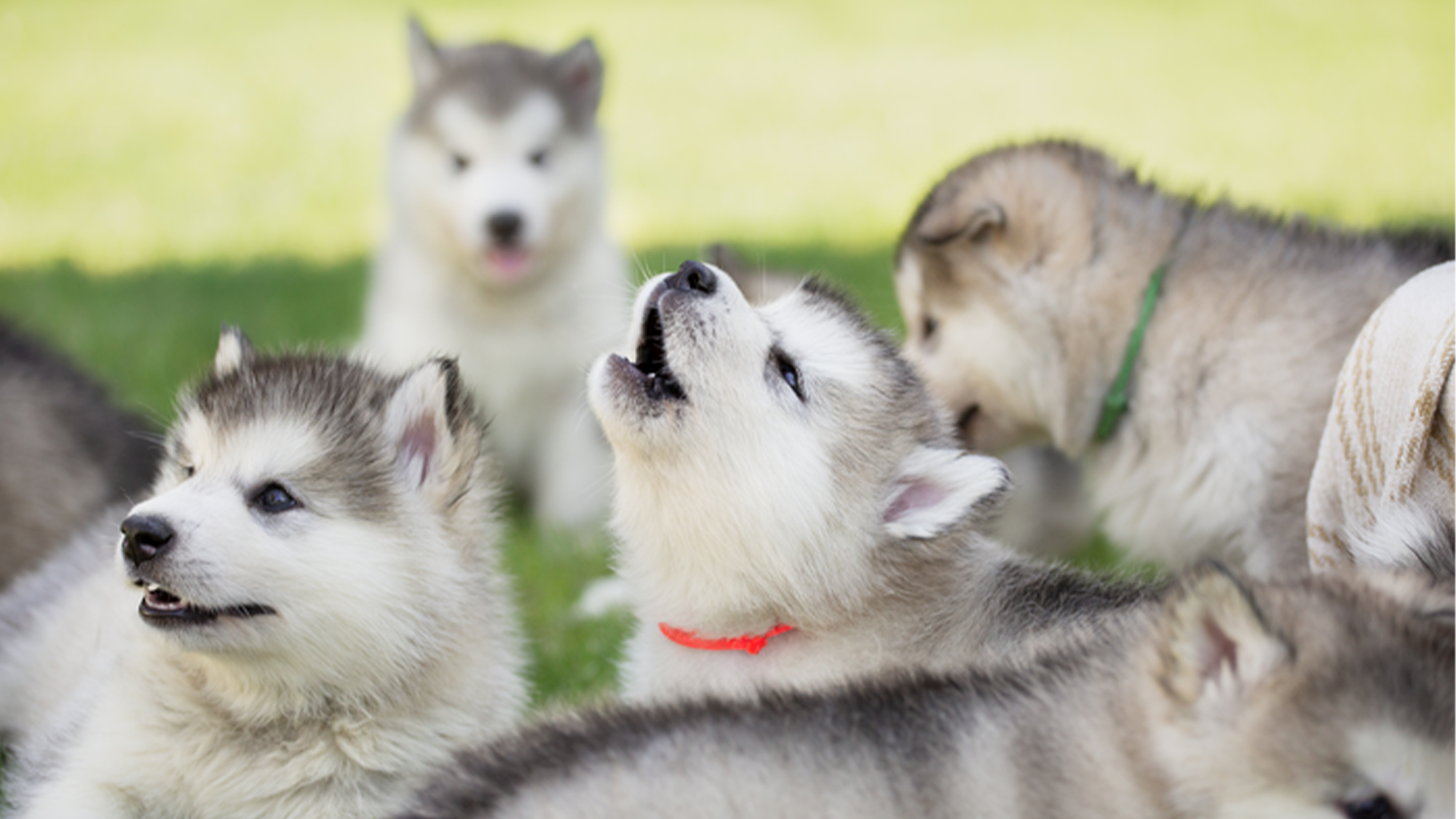

While wolves and domesticated dogs are distantly related, selective breeding has obviously led to some major differences between the wild predator and their cousins. One similarity that has remained over the years is in their vocalizations.
Howling is a form of communication in wolves that is also found in numerous canine species, like Alaskan malamutes and Kleiner Münsterländer. However, domesticated dogs and their wild counterparts use howling a bit differently.
[Related: Ancient wolf DNA is being used to sniff out where our love story with dogs began.]
In wolves, howling is primarily used for long-distance communication with other wolves, as a way to mark territory boundaries, and to figure out where other wolves are based on their replies to howls.
For our domestic best friends, it’s a little more complex. Some breeds (such as sled dogs) are considered “hard howlers,” which means that they howl frequently and in “reply” to a non-howl sound like a bell or music. Other dog breeds never howl, despite being able to produce them.
But how much of this distant language is shared? Researchers at Eötvös Loránd University (ELTE) in Budapest, Hungary are investigating how domesticated dogs react to wolf howls and the role that genetics, sex, and age have on howling behavior.
Their study published February 6 in the journal Communications Biology found that the dogs more closely related to wolves genetically, such as the Siberian husky, respond to wolf howls more than dog breeds like labrador retrievers which are more split from wolves genetically.
They played recordings of wolf howls for 68 purebred family dogs and observed their behaviors.
A root distance, or a breed’s genetic similarity to wolves, was used as a measure to test the effect of the howls on the breed. The breeds that are more closely related wolves, like huskies, are considered the “ancient breeds” while domesticated dogs like beagles are the “modern breeds.”
“According to our results, breeds which are genetically more similar to wolves, are more prone to reply with their own howls to wolf howl playbacks,” said ELTE ethologist and study co-author Fanni Lehoczki, in a statement. “On the other hand, breeds more distantly related to wolves typically reacted with barking instead of howls. It seems that although howling is present in most breeds’ repertoire, it lost its functionality due to the changed social environment, thus, modern breeds do not use it in adequate situations.”
The team believes that those more closely related to wolves are able to process the information in the wolf howls better, and the ancient breeds may have gotten stressed about intruding on another pack’s territory and used howling as a way to avoid conflict—just like wolves in the wild.
[Related: Puppies beat out young wolves in one important skill.]
“Interestingly, this genetic effect on howling occurs only among older dogs [over 5 years old], for which an experience- or some age-related personality effect can be a plausible explanation,” said Tamás Faragó, a postdoctoral researcher at ELTE and study co-author, in a statement. “It is possible that, in line with our hypothesis, howling appearing with a higher level of stress is a fear reaction—older dogs are more fearful, which was already suggested by previous studies, but these speculations require further investigation.”
The team also tested the effects of sex and reproductive status of the dogs on howling behavior. They found that there was no difference between intact and spayed females, but intact and neutered males behaved differently.
“Neutered males, which are in lack of testosterone, howl more in response to the playbacks. As neutered males are suggested to be more fearful, this result can be in line with our findings about responsiveness and more stressed behavior. Thus, the dog howl may mean ‘I am scared, don’t come closer’,” said Lehoczki.
This research is helping scientists understand how domestication and selective breeding by humans have changed canine vocal repertoire and the impact it has had on human relationships with the domestic dog.
